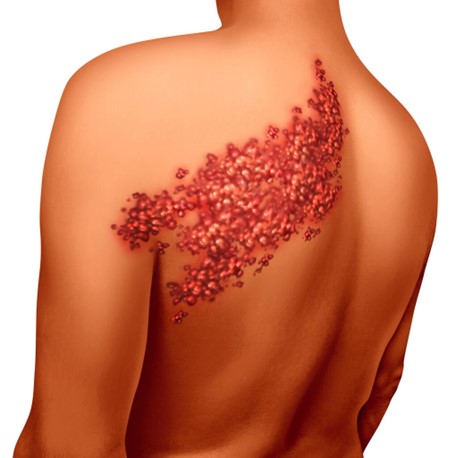A nurse is caring for a client who is at risk for anaphylaxis due to bee stings. When reinforcing teaching about the use of an automatic epinephrine injector, which of the following actions is the priority?
Review the signs of anaphylaxis with the client.
Instruct the client to store the injector at room temperature.
Inform the client to seek medical attention following administration of the injection.
Have the client perform a return demonstration of the equipment.
The Correct Answer is C
The correct answer is c. Inform the client to seek medical attention following administration of the injection.
Choice A reason: Reviewing the signs of anaphylaxis with the client is important, but it’s not the priority. The client must first know what to do in case of an emergency.
Choice B reason: Instructing the client to store the injector at room temperature is a part of the storage instructions, but it’s not the immediate action to take during an anaphylactic reaction.
Choice C reason: This is the priority because anaphylaxis is a potentially life-threatening condition and even after administering epinephrine, it’s crucial to seek immediate medical attention.
Choice D reason: Having the client perform a return demonstration of the equipment is a good teaching method, but it’s not the immediate action to take when an anaphylactic reaction occurs.
Nursing Test Bank
Naxlex Comprehensive Predictor Exams
Related Questions
Correct Answer is B
Explanation

The correct answer is choice B, herpes zoster. A 65-year-old client should receive the herpes zoster vaccine, which is recommended for adults over the age of 60 years to prevent shingles. Choice A is incorrect because inactivated polio virus vaccine is recommended for travelers to areas where polio is endemic or epidemic, and for laboratory workers who handle specimens containing poliovirus. Choice C is incorrect because the human papillomavirus vaccine is recommended for females aged 9-26 years and males aged 9-21 years. Choice D is incorrect because the measles, mumps, and rubella vaccine is recommended for individuals born after 1957 who have not had the vaccine or the diseases.
Choice A: Inactivated polio virus vaccine is incorrect because it is recommended for travelers to areas where polio is endemic or epidemic, and for laboratory workers who handle specimens containing poliovirus.
Choice C: Human papillomavirus vaccine is incorrect because it is recommended for females aged 9-26 years and males aged 9-21 years.
Choice D: Measles, mumps, and rubella vaccine is incorrect because it is recommended for individuals born after 1957 who have not had the vaccine or the diseases.
Correct Answer is A
Explanation
The correct answer is choice A: Elevate the head of the client's bed for 1 hr after the feeding. This is because elevating the head of the client's bed to at least 30 degrees can help prevent aspiration and gastric reflux. Choice B is incorrect because administering the feeding solution at a cold temperature can cause discomfort and diarrhea. Choice C is incorrect because rotating the jejunostomy tube once per day can cause irritation and trauma to the stoma site. Choice D is incorrect because flushing the tube with 90 mL of sterile water before and after the feeding is not necessary as long as the tube is adequately flushed before and after each feeding.
Explanation for why the other choices are not answers: B – Administering the feeding solution at a cold temperature can cause discomfort and diarrhea, so it should not be done. C – Rotating the jejunostomy tube once per day can cause irritation and trauma to the stoma site, so this is not the correct action. D – Flushing the tube with 90 mL of sterile water before and after the feeding is unnecessary to do as long as the tube is adequately flushed before and after each feeding. Thus, this is not the correct answer.
Whether you are a student looking to ace your exams or a practicing nurse seeking to enhance your expertise , our nursing education contents will empower you with the confidence and competence to make a difference in the lives of patients and become a respected leader in the healthcare field.
Visit Naxlex, invest in your future and unlock endless possibilities with our unparalleled nursing education contents today
Report Wrong Answer on the Current Question
Do you disagree with the answer? If yes, what is your expected answer? Explain.
Kindly be descriptive with the issue you are facing.
